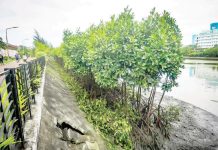
THE DEPARTMENT of Agrarian Reform (DAR) in Western Visayas races against time to distribute the remaining 38,997 hectares of agricultural land by 2028, but the challenges loom large. The fulfillment of President Marcos Jr.’s promise to finalize the Comprehensive Agrarian Reform Program (CARP) within his term certainly needs strategic and administrative reforms.
In Region 6 alone, agrarian reform efforts are fraught with legal and bureaucratic hurdles. The resistance from landowners is not a new phenomenon. From contestations in court to delays in the issuance of notices of coverage, these legal battles are a primary bottleneck. The tedious and protracted litigation not only slows down the pace of land distribution but also places a heavy financial and emotional burden on agrarian reform beneficiaries (ARBs), who often lack the resources to engage in lengthy legal disputes.
The bureaucratic maze in securing land titles presents another significant challenge. Instances where land titles are missing or incorrect at the Registry of Deeds necessitate a cumbersome process of securing duplicates or adequate documentation. This not only delays the issuance of Certificates of Land Ownership Awards (CLOAs) but also undermines the security of tenure for the ARBs.
These issues impact the lives of 271,240 agrarian reform beneficiaries across the region, from Aklan to Negros Occidental, hindering their access to land and the economic empowerment it brings. Perhaps enhancing DAR’s legal frameworks and establishing specialized agrarian courts could streamline the resolution of disputes. These courts would help expedite the legal proceedings that currently slow down land distribution, providing a direct path to quicker land transfers.
DAR, too, could leverage technology. A digital land management system could revolutionize how lands are processed. By digitalizing land records and creating an online platform for tracking reform status, DAR can enhance transparency and efficiency. This technological upgrade would be particularly impactful in managing the extensive data across the provinces from Capiz to Iloilo, ensuring that each parcel is accounted for and promptly distributed.
And without a doubt, inter-agency collaboration is essential. Why not form a joint taskforce with agencies like the Registry of Deeds and the Land Registration Authority? Through this, DAR can ensure that land titles are processed swiftly and accurately. This coordinated effort would be crucial in tackling the substantial remaining balance of lands to be distributed, which includes significant parcels in areas such as Negros Occidental 1 and 2, where over 28,000 hectares still await distribution.
Engaging stakeholders is equally important. Building a dialogue with landowners and educating agrarian reform beneficiaries about their rights and the benefits of the reform process can help reduce resistance and foster a more cooperative environment.
By addressing these systemic issues, we can ensure that agrarian reform in Western Visayas fulfills its promise of equity, prosperity, and justice for all.







